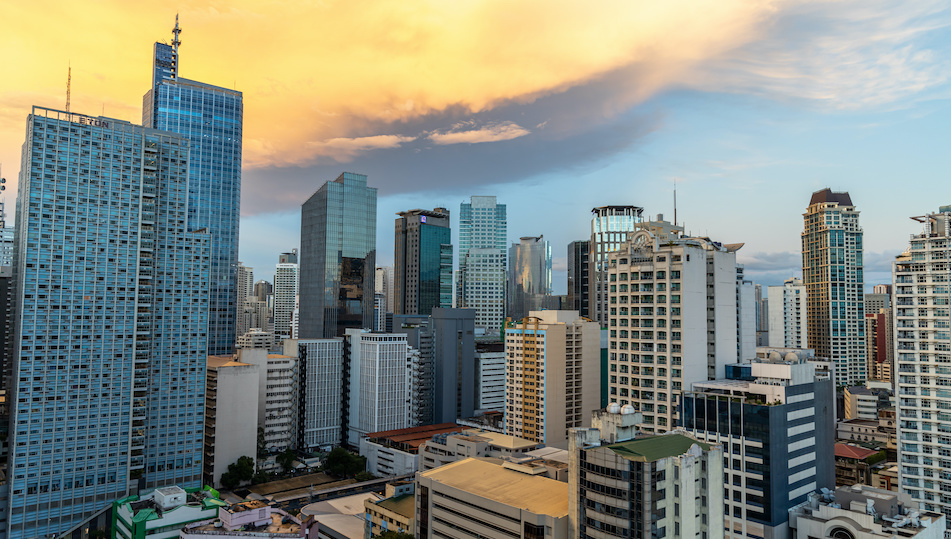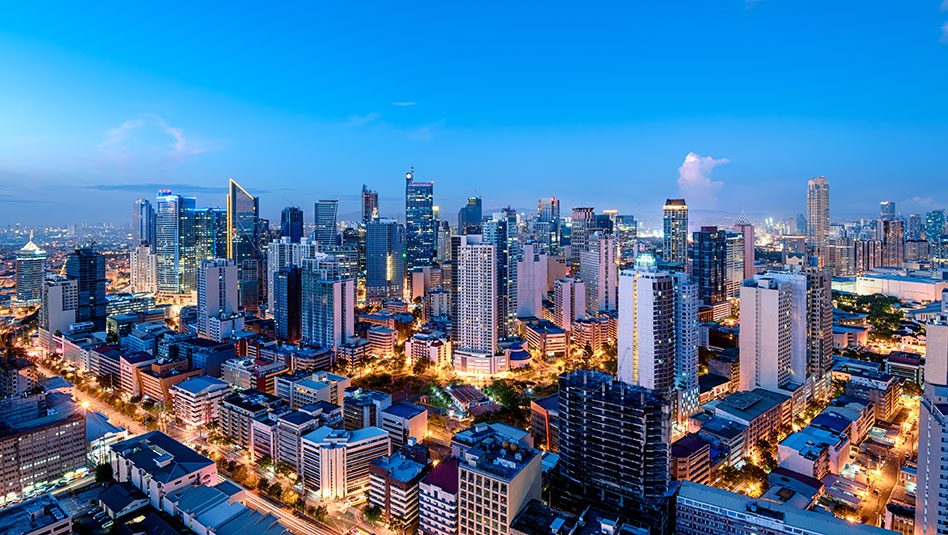




Inflation Update: Prices rise even slower in May
 DOWNLOAD
DOWNLOAD

Monthly Recap: BSP to outpace the Fed in rate cuts
 DOWNLOAD
DOWNLOAD

Quarterly Economic Growth Release: 5.4% Q12025
 DOWNLOAD
DOWNLOAD


TOP SEARCHES
Tech to drive home-sharing business after Airbnb survives COVID

By Luisa Maria Jacinta C. Jocson, Reporter
REGINA G. DE DIOS, a 58-year-old Filipina entrepreneur who rents out condominium units to tourists as an Airbnb host, finds the business “financially and socially rewarding.”
“I have flexibility in renting out my condo units,” she said in a Viber message. “I choose how long I want the units rented out, at what price, and pause if I need to take a break.”
Property owners use Airbnb to make income on the side. Property consultants see it as a magnet for investments in the property market, while driving tourism growth, especially now that coronavirus lockdowns have been lifted in most parts of the world.
In 2019, California-based Airbnb, Inc. posted a net loss of $674.35 million amid a global coronavirus pandemic, according to the Nasdaq website. Its net loss widened to $4.58 billion in 2020 before easing to $352.03 million in 2021.
“Airbnb and maybe future variants are highly beneficial to the real estate and tourism industries because development and technology move forward to a more mobile-based transaction society,” Roy A. Golez, director for Research at Leechiu Property Consultants, said in an e-mail. “The ease of use of the app encourages people to travel and go on vacations more.”
 Launched in 2008, Airbnb began as an online marketplace focused on short-term homestays and lodging. The platform allows hosts to put up property for rent on the website that tourists can use while traveling.
Launched in 2008, Airbnb began as an online marketplace focused on short-term homestays and lodging. The platform allows hosts to put up property for rent on the website that tourists can use while traveling.
In 2007, Brian Chesky and Joe Gebbia rented out air mattresses in their San Francisco apartment to attendees of a conference because all the hotels were booked. They called their service “Air Bed and Breakfast.”
In a few years, this small experiment would create the hotel industry disruptor Airbnb, according to Leigh Gallagher, who chronicled the growth of the company in her book The Airbnb Story.
The company, with third co-founder Nathan Blecharczyk on board, listed more than three million lodgings in almost 200 countries and was worth $31 billion before the pandemic, more than Hilton and Wyndham combined, according to the Wharton School of the University of Pennsylvania.
After going public in December 2020 — amid the global pandemic — it now has a market capitalization of $61.84 billion, according to Nasdaq.
Mr. Golez said the internet made the lodging market more accessible. “It has allowed owners of residential units to go direct to the market, and for the guests to also directly talk to the owners.”
This has brought down rent costs, while travelers have more choices in terms of lodging size, location, quality, and amenities. “This is all good for the real estate and tourism market,” he added.
“Airbnb has become an affordable option for budget travelers and backpackers,” Joey Roi H. Bondoc, associate director at Colliers Philippines, said in a separate e-mail. “A lot of condominium units have been converted into Airbnb units.”
The growth of the local Airbnb landscape has been notable and particularly felt in the various tourism destinations in the Philippines, Karisse N. Garcia, research manager at JLL Philippines, said in an e-mail. “Travelers’ quest for cheaper accommodation alternatives drove up the demand for this product.”
She said the popularity of Airbnbs in tourist spots boosted the sales of residential units in these areas because units rented out promise higher returns than long-term lease.
They are not likely to affect housing prices.
“On a macro level, I don’t think Airbnb has affected housing affordability because these are not new lodging facilities catering to tourists and thus compete with existing rooms in the tourist market,” Mr. Golez said.
“The rise of Airbnb doesn’t seem to have much bearing on the residential market because it caters to different demand profiles,” Ms. Garcia said.
Bettina G. Lozano, a 54-year-old IT manager who is also an Airbnb host, prefers long-term tenants.
“It makes sense to have it leased out on a monthly basis or longer, she said by telephone. “That way, I don’t have to worry about cleaning and maintaining it.”
Long-term stays are a popular choice among Filipino guests, according to an Airbnb article posted on its website. While Airbnb hosts prefer the security of income in long-term rentals, property consultants think it will take a while before the platform veers away from short-term bookings.
“Although there are some Airbnb units that can be rented out for the long term, majority of customers book units or rooms for the short term so it typically doesn’t eat into the residential rental market where leases typically go for a minimum of one year,” Ms. Garcia said.
Mr. Golez expects the local Airbnb landscape to keep growing “as we move transactions to the internet and through mobile.”
While Airbnb directly competes with hotels and resorts, it is still expected to help promote and boost the tourism market.
“Second home units in tourist locations are given new life as renovated, well-maintained and income-earning assets,” Mr. Golez said. “Not only will one’s house be in a better condition because of the income generated and maintenance costs are covered, there will also likely be additional net cash inflows.”
‘ENTHUSIASM’
In the first quarter, searches by international guests for Airbnb stays in the Philippines more than doubled from a year earlier, according to an article posted on the Airbnb website.
“Since the country eased all travel restrictions in April, there has been an incredible amount of enthusiasm among international travelers looking to travel to the Philippines.”
Eco Hotels, a Philippine green-service hotel chain business, said Airbnb benefits the industry by creating awareness about new travel destinations.
“The government has a lot of catching up to do in order to benefit from Airbnb’s free advertising of the country’s great destinations and the income and taxes it may bring,” the company said in an e-mail.
The hotel and resort industry is also not worried about the rise of Airbnb.
“Airbnb facilities do not have a direct and major impact on 5-star hotels even for ‘staycation’ because guests of five-star hotels still prefer professional and personalized services,” Benito C. Bengzon, Jr., executive director at the Philippine Hotel Owners Association, Inc. said in a Viber message.
“The market for Airbnb is limited because business travelers and convention groups will not use its facilities,” he said. “Hotels now offer very attractive long-stay rates to address the needs of the business market. Expatriates still prefer a hotel for safety and security reasons.”
“There are still many travelers who prefer certain standards of service and would not take risks in vacationing in a lousy property with a lousy experience. They still prefer the hotel service and experience,” Eco Hotels said.
It said the hotel and resort industry should work with the Airbnb platform to maximize customer bookings.
“The platform does not limit listings and types of properties and any hotel and resort may offer their properties in this platform,” it added.
Mr. Bondoc said the demand for Airbnb units could also extend to the office property market.
“Airbnbs extending to office will be popular moving forward especially with the popularity of work from home or work from anywhere,” he said.
“For the office sector, there is the co-working model, which allows shared time use of office amenities, facilities and addresses,” Mr. Golez added.
More than a third of local guests stayed at an Airbnb unit to travel and work remotely, according to a recent Airbnb survey among Filipino guests.
In the first half of 2021, more than two-thirds of new Airbnb hosts were millennials and Gen Zs, ages 18 to 40.
The youth is accelerating the growth of Airbnb hosts even in the local market, Ms. Garcia said. The barkada culture led this consumer group to look for lodging spaces that can accommodate more people at the cheapest price, she added.
The Airbnb business is expected to continue growing amid the pandemic.
“We see the Airbnb business continuing its positive trajectory in the coming years with the tourism market bouncing back, though it may not spill over to the other asset classes due to its main demand profile which is heavily geared toward leisure and tourism,” Ms. Garcia said.
Airbnb units became available earlier than the managed hotel or resort lodging facilities during the pandemic, Mr. Golez said. “In a way, Airbnb has given confidence to individual unit investors that they can rent out their units at potentially higher yields.”
Ms. De Dios said half of the Airbnb market has yet to return to pre-pandemic levels. “It’s still a cut-throat business.”
This article originally appeared on bworldonline.com





 By BusinessWorld
By BusinessWorld